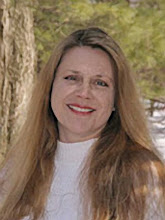
In the farthest part of the barn, along the concrete wall that once served as the milking station for Griswold's dairy cows, rests an old sign that reads, "Ivy Hill." The sign is battered and rusted and broken right in half. Not original to the property, we think the name Ivy Hill came along sometime in the 1960's when the ancestors of "Old Man Griswold" died out and the property changed hands. By the time my sister bought the place in the early nineties, the new sign and name were already well-known to the area.
No longer a working farm, my sister's family works hard for the privileged of living there. My niece and nephew pitch in too - They do this willingly - they love the "farm lifestyle" and enjoy the land and the property.
Sadly, the last fifteen years have seen insurmountable growth to this area bringing with it, urban sprawl and a changing value system. Where once songbirds competed with cicada in the late afternoon, cars blasting bass rhythms loud enough to knock the flow blue dishes off the cupboard shelf is a common-enough sound at day's end begging the country dweller's question.. "Why do city folks move to the country if they miss the city so much?" If only they would turn off their stereos and learn to listen to the sounds of nature.... ?
As the UPS man tells the story, one day he was stopped in front of Ivy Hill Farm preparing to deliver a package. Behind him, a new car with a booming sound loomed. Impatient and without reverence, the lady driver decided to pass the UPS truck on the inside - between his truck and the Ivy Hill driveway. When she did this, she took out the old hand-painted sign and nearly killed the UPS man who was on foot and barely fell away in time. From his back in the marshy wet bed of Iris the UPS man watched as the old sign post smashed through the right side of the driver's windshield splintering its old sign into a thousand pieces before it fell under the wheels of a the Chrysler 300. Without hesitation or the slightest concern, the lady in the big car just kept on driving, leaving echos rhythms of Eminem in her wake...
Look out, we're going to be seeing more of this in the future. As an octogenarian likes to tell me, "The old ways are being replaced by the new"
Will it be better?
You tell me...










